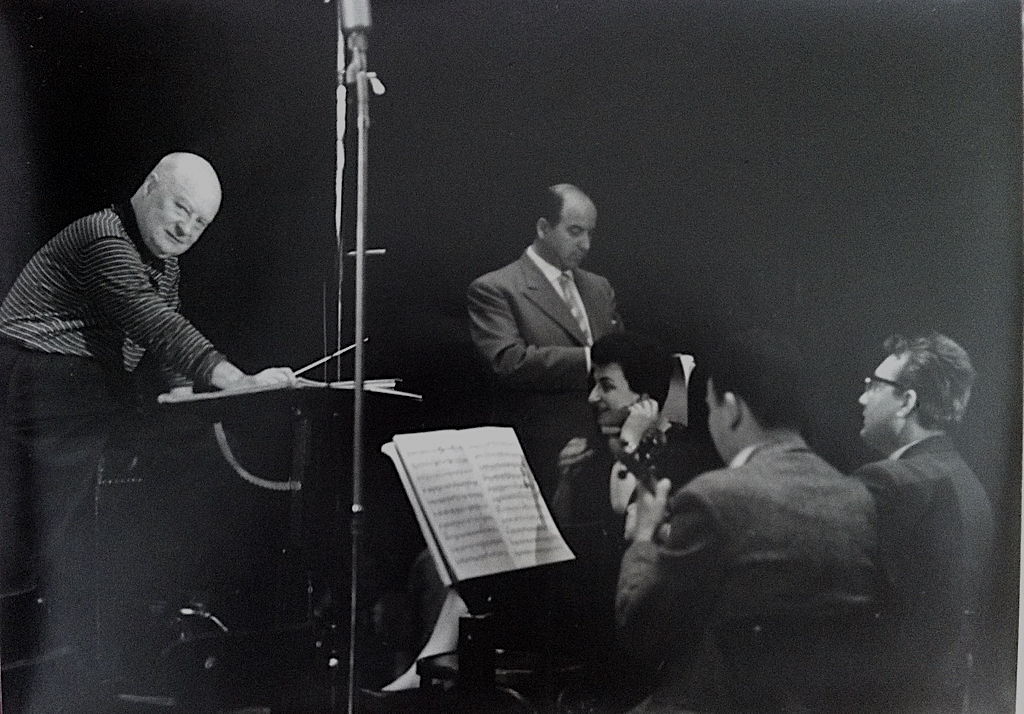Thinking Beethoven's music
Adorno's suite of fragments on Beethoven has been translated from the German by Sacha Zilberfarb.

Visit Beethoven Adorno's "Philosophy of Music" is a strange book, the author having accumulated a wealth of material over more than thirty years without succeeding in giving it a finished form. It is this material, made up of more or less developed notes and projections, that Rolf Tiedemann has grouped into twelve thematic chapters and published posthumously in 1993. This richly annotated edition is now available in French, thanks to Sacha Zilberfarb's outstanding translation work for the Rue d'Ulm publishing house.
Let's face it, this book is frustrating insofar as it offers nothing more than a series of fragments through which we leap from analytical observations to aesthetic and philosophical considerations, via an attempt to characterize the different periods of Beethovenian creation. What is missing is what definitive writing would have provided: mediation between extremes, the necessary articulation between ideas, and the passage to a higher level of elaboration. As it stands, however, the book is fascinating, as it allows us to enter the author's workshop and grasp his working method, this way of approaching and nurturing his subject through multiple approaches, from different focal points. It's easy to see how this accumulation of scattered reflections would have benefited from careful editing. But perhaps it was precisely the sheer quantity and heterogeneity of these that made this impossible.
Through the figure of Beethoven and the mutations of his time, Adorno seeks to grasp something essential for the very meaning of music. He speaks of a "Copernican turning point", likened to the "double position of the 'spirit'" evoked by Hegel in the Phenomenology of mind As an object, the mind is only 'looked at' in its movement; as a subject, it is the very one who, looking, engenders this movement. By virtue of this, the objectivity of form must henceforth be "created by the subject itself".
This reference to Phenomenology of minda contemporary work of Beethoven's (it dates from 1807), recurs several times in the book, and rightly so, since the philosopher and the musician, caught up in the movement of the Enlightenment and the French Revolution, each introduced a new dynamic in his own field, deploying a new way of thinking. in the making of which the dialectic - the foundation of sonata form - is the instrument. Adorno quotes Hegel, who for him most closely defines Beethoven's music: "the thing itself is not exhausted in the end it aims to achieve, but in the progressive development of its production ". He draws the consequences for the analysis of works: it's not a question of showing "what's in what, but what's in what". follows what, and why". Adorno links this inscription of time in the construction of musical meaning, which precedes Beethoven but is particularly embodied in his music, to the motif of hope, whose resonances exceed the purely musical sphere; a motif that Beethoven "presents" more than he "expresses", and which gives his forms their transcendent dimension - truth appears in them in its own unfolding.
Adorno sees in the elemental character of motifs and themes a dissolution of the pre-existing character of the material, the isolated elements existing not in themselves but as a function of the whole, which brings us back once again to Hegel and his famous formula that "the true is the Whole". It is not pre-posed (in the form of God in philosophy, tradition and norm in music), but its essence is achieved "through its development".
Many of Adorno's notes are analytical, in the sense that "all talk about the content of music remains pure chatter as long as it is not obtained by dint of technical analysis." But it is precisely such a transition between technique and content that is missing here. It's up to the reader to make it himself.
Theodor W. Adorno: Beethoven. Philosophy of music. Translated from the German by Sacha Zilberfarb (with the assistance of Jacques-Olivier Bégot), 355 p., € 32.00, Editions Rue d'Ulm, Paris 2020, ISBN 978-2-7288-0718-5









